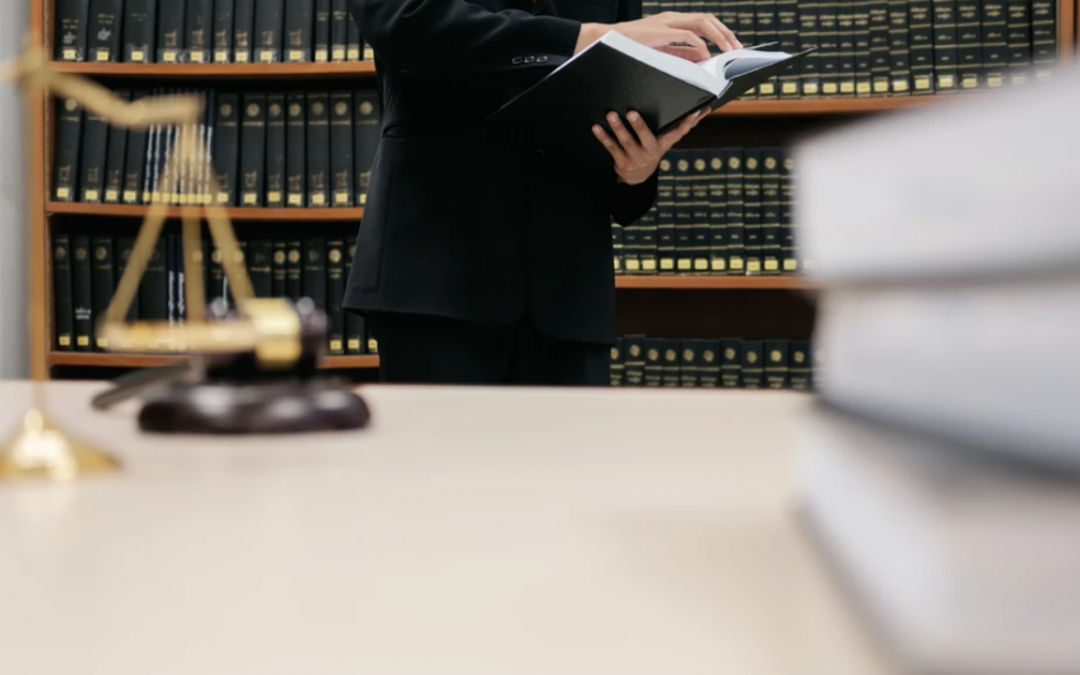This article really begins in a jail cell in a small town in Mississippi. That may not be the first thing you think when discussing a publication for an association of attorneys. I’m writing this article from a different lens than most new lawyers have. The litigation group we have recently formed with AAJ reflects that lens in the policy changes it intends to affect. When I woke up in that jail cell in Fulton Mississippi, with a population of no more than 3000, I thought I had burned my life to the ground once again. Little did I know that would be the furthest thing from the truth. My journey was just beginning.
I had moved there less than a year before from Atlanta Georgia, trying to escape a life filled with criminal convictions due to substance use disorder. I had literally lost everything and moved to a small town where my great-grandparents were from with a trash bag full of clothes and a TV. My great-grandparents still had an abandoned house in Fulton Mississippi, that my grandmother allowed me to live in to try and attend a local community college there. There was no heat in the house during that first winter, I was able to make it on government assistance, and a caring coach for the community college who gave me a job at the fitness center. I will spare you the myriad of amazing people that came into my life and helped me while I was at the lowest point I had ever been, but I think it’s important for the context of this article to understand why I’m so passionate about this litigation and reform. Society likes to label people criminals or addicts. I have been labeled both. I also now hold the labels of Lawyer and person in Recovery from substance use disorder. I had found my meaning at the lowest point of my life and I hadn’t even realized it yet.
Viktor Frankl, in his book, “A Man’s Search For Meaning” discusses the idea of Logotherapy. This is the idea that one may find meaning in his suffering. He states, “I believe that my handicap will only enhance my ability to help others. I know that without the suffering, the growth that I achieved would have been impossible.”[1] I have found that particularly true in my own life and now my work in the Law. Without the incarceration and the stigma, I would not have such an intimate understanding of the litigation we now pursue. Frankl also speaks of the “existential vacuum,” which refers to the feeling of emptiness and lack of meaning. I believe this vacuum may be one of the reasons this country and our profession specifically, suffer from some of the highest suicide and addiction rates on the globe.
The ability to carry buckets of water back into the hell that I come from fuels me with a passion and drive that I will be eternally grateful for. Needless to say, although it wasn’t easy I was able to move through community college without a high school diploma, on a full academic scholarship to Ole Miss for academic achievement and based on indigence. I found Recovery and Education to be the ladder to where I stand today. “Every human being has the freedom to change at any instant. Therefore, we can predict his future only within the larger framework of a statistical survey referring to a whole group; the individual personality, however, remains essentially unpredictable. The basis for any predictions would be represented by biological, psychological or sociological conditions. Yet one of the main features of human existence is the capacity to rise above such conditions, to grow beyond them. Man is capable of changing the world for the better if possible and for changing himself for the better if necessary.”[2]
This brief article will deal with the macrosocial implications of substance use disorder on both our criminal justice system, and our civil justice system. Despite being arguably the largest criminal justice and public health issue in this country, Law schools do not teach about addiction in the Law Schools or in the profession nearly enough. This has led to an increasingly high level of suicide and death for both lawyers and the general population. Only until recently, have medical schools begun teaching resident physicians about the implications of substance use disorder. Even now, the education about this issue remains relatively small when compared to the societal tolls it is taking. 60 to 80% of those incarcerated suffer from substance use disorder.[3] And overdose is now the number one cause of death for people under 55, killing more than the soldiers lost in the Vietnam War.[4]
CRIMINAL JUSTICE SYSTEM
As previously mentioned, 60 to 80% of individuals incarcerated in this country can be diagnosed with substance use disorder. The private prison industry has discovered an extremely lucrative business model. By felonizing substance use disorder and the mere possession of a substance related to that disorder, private prison lobbyists have created an enormous client base. When an individual is charged with a felony and subsequently convicted, his or her ability to successfully reintegrate into society is damaged virtually beyond repair. To add insult to injury, the government then takes away this individual’s ability to reintegrate by creating the stigma of being a felon; thereby limiting access to education, housing, employment, and many other resources that are detrimental to successful reintegration. This judicial juggernaut has put a revolving door on the prisons and created guaranteed repeat business for those invested in the incarceration industry.
The drug war is an abysmal failure which has not only led to the New Jim Crow[5] with incarceration rates rising 700% over the last 40 years and deaths from overdoses reaching epidemic level proportions. I devoted an entire academic journal to this issue in 2018, where I discussed the disastrous impacts of the drug war and substance use disorder on our country. I also discussed some of the solutions by first eliminating some of the barriers, and secondly, providing solutions to the epidemic of substance use disorder other than sentencing someone to crime college.[6]
CIVIL JUSTICE ISSUES
Despite being labeled a medical disorder for over half a century, the legal system continues to treat substance use disorder as a criminal/moral failure. The science is in, substance use disorder is a diagnosable and treatable disorder.[7] Employers are held to standards under the ADA, yet the criminal justice system has free reign to prosecute a disorder as a crime. This begs the question as to why are we not suing for the civil rights of those who have lost their liberty due to medically declared disorder.
Due to the large amount of potential civil justice actions surrounding substance use disorder, sober home fraud, treatment center abuse, and a host of others; we have decided to create an entire litigation group within AAJ dedicated to finding justice for those within this vulnerable population that have been subjected to the heavy hammer of injustice for far too long. Myself, and others will be writing for the Trial Magazine January 2021 edition, which will be completely dedicated to addiction and will be covering the specifics of this Litigation in much greater detail. We will cover different areas of the Law and show how the stigma of substance use disorder, coupled with the lack of mental/behavioral health resources in this country has led to an increasingly dangerous environment for those suffering from substance use disorder. Even the U.S. Department of Health and Human services has declared this the “Wild West” of law and policy in this country.[8] It is a proverbial white elephant standing in the middle of the room yet no one seems to notice. I recently spoke to a congressman in Washington D.C. who was performing a Request for Information, trying to grasp what they were really dealing with. This individual was with the Department of Energy and Commerce, and probably only aware of this because of the opioid litigation that is currently taking place in Ohio.
As with asbestos and tobacco, trial lawyers have taken the charge at the pharmaceutical industry in what will likely be the largest conspiracy and cover-up of our generation that has led to the death of hundreds of thousands of Americans. What we deal with now, is the aftermath of these marauders. We now have an enormous segment of the population struggling with substance use disorder, and being preyed upon by an unregulated treatment industry. It is up to us again to heed the call for Justice, and to give a voice to the voiceless. It was Bryan Stevenson who said, “The true measure of our character is how we treat the poor, the disfavored, the accused, the incarcerated, and the condemned.”[9] There are currently 23 million Americans struggling with substance use disorder, many of them agonizing alone because of the fear and stigma associated with it. If they don’t have insurance, they will likely wind up in the squirrel cage that is the criminal justice system. If they do, they may well land in the hands of predators roaming an unregulated industry while reaping whirlwind profits. Stevenson also said, “There is a strength, a power even, in understanding brokenness, because embracing our brokenness creates a need and desire for mercy, and perhaps a corresponding need to show mercy. When you experience mercy, you learn things that are hard to learn otherwise. You see things you can’t otherwise see; you hear things you can’t otherwise hear. You begin to recognize the humanity that resides in each of us.”[10]
I can tell you from personal experience that I completely relate to this quote. That for me and my own brokenness through substance use disorder, I was shown mercy by those around me in Mississippi and across the country. I was fortunate enough to attain Recovery, Education, and admission into the Florida Bar despite overwhelming odds. With that attainment, came an insight and a perspective into an industry and criminal justice system that most in our profession never get to experience firsthand. With that attainment and mercy, I now have a deep sense of gratitude for what has been given to me. And with that attainment, I now have an even greater responsibility to use that perspective and mercy as both a sword and a shield for my clients. This is why I speak out, No Matter What, to show others that there is Power in Vulnerability, and to show there is no Defense against the Excellence of a Trial Lawyer which meets a pressing public need.
[1] Frankl, Viktor E. Man’s Search for Meaning: An Introduction to Logotherapy. New York: Simon & Schuster, 1984. Print. [2] Id. [3] Statistics: Offenses, Federal Bureau of Prisons, (June 24, 2017). (February 18, 2020) [4] Josh Katz & Margot Sanger-Katz, ‘The Numbers Are So Staggering.’ Overdose Deaths Set a Record Last Year, WWW.NYTIMES.COM (Nov. 29, 2018), https://www.nytimes.com/interactive/2018/11/29/upshot/fentanyl-drug-overdose-deaths.html [5] MICHELLE ALEXANDER, THE NEW JIM CROW: MASS INCARCERATION IN THE AGE OF COLORBLINDNESS (2010). [6] Joshua S. Horton, Drug War Reform: Criminal Justice, Recovery, and Holistic Community Alternatives (Aug. 23, 2017), 53 Crim. L. Bull. (2018). [7] American Psychiatric Association. (2013). Diagnostic and statistical manual of mental disorders (5th ed.). Arlington, VA: Author. [8] U.S. Dept. of Health & Human Services Response to H. Comin. on Energy & Commerce Letter (Sept. 12,2017), https://republicans-energycommerce.house.gov [9] Stevenson, Bryan, author. Just Mercy : a Story of Justice and Redemption. New York :Spiegel & Grau, 2014. [10] Id.

